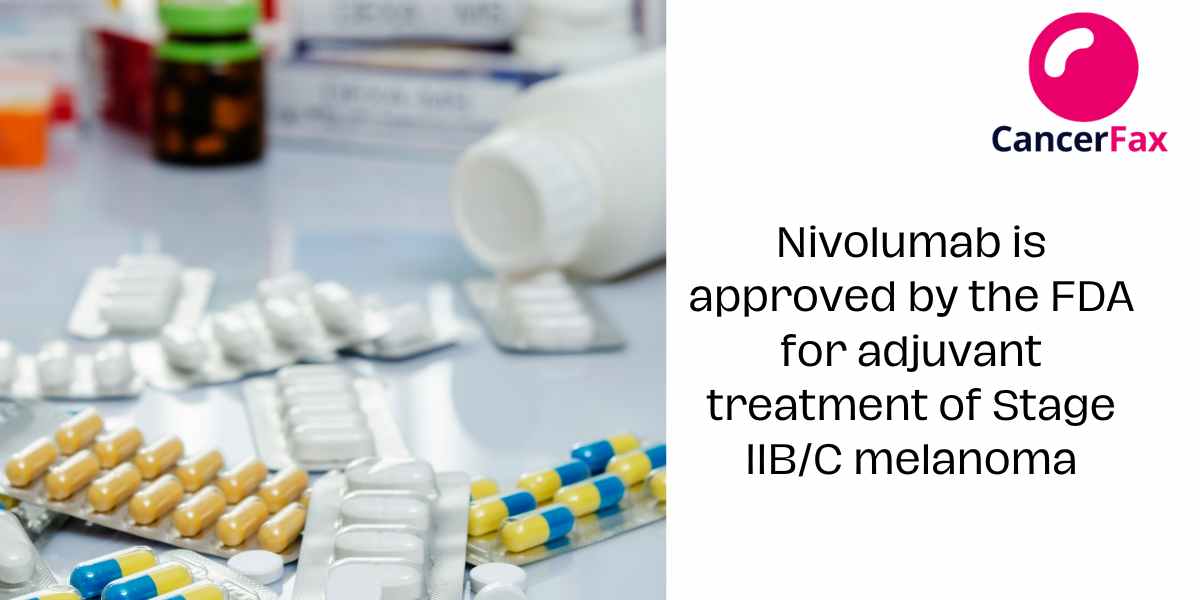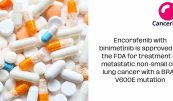Nivolumab is approved by the FDA for adjuvant treatment of Stage IIB/C melanoma
Nov 2023: Nivolumab (Opdivo, Bristol-Myers Squibb Company) was granted approval by the Food and Drug Administration as an adjuvant therapy for Stage IIB/C melanoma in patients 12 years of age and older who had undergone complete resection.
In the randomized, double-blind trial CHECKMATE-76K (NCT04099251), which included 790 patients with Stage IIB/C melanoma, efficacy was assessed. A placebo or 480 mg nivolumab was administered intravenously to patients in a randomized (2:1) fashion every four weeks for a maximum of one year, or until disease recurrence or unacceptable toxicity occurred.
A complete resection of the primary melanoma with negative margins and a negative sentinel lymph node within 12 weeks prior to randomization, as well as an ECOG performance status of 0 or 1, were prerequisites for enrollment. Patients who met the inclusion criteria for the trial did not have ocular/uveal or mucosal melanoma, autoimmune disease, any condition necessitating systemic treatment with corticosteroids (equivalent to or exceeding 10 mg of daily prednisone) or other immunosuppressive drugs, or prior melanoma therapy other than surgery. AJCC 8th staging system edition stratification of randomization was employed (T3b versus T4a versus T4b).
The primary efficacy outcome measure was recurrence-free survival (RFS), which the investigators defined as the time between randomization and the earliest of the following events—local, regional, or distant metastasis recurrence, new primary melanoma, or mortality (from any cause). Evaluations were performed at 26-week intervals from years one to three, and then every 52 weeks for the following five years. In both the nivolumab and placebo arms, the median RFS was not achieved (95% CI: 28.5, not reached; p-value<0.0001). The hazard ratio was 0.42 [95% CI: 0.30, 0.59]; p-value was less than 0.0001.
Mood swings, musculoskeletal pain, pruritis, rash, and diarrhea were the most frequently reported adverse effects (>20% of patients).
Patients weighing 40 kg or more are advised to take 240 mg of nivolumab every 2 weeks or 480 mg every 4 weeks until disease progression or unacceptable toxicity, for a maximum of one year. For up to one year, pediatric patients weighing less than 40 kg are prescribed a dosage of 3 mg/kg every two weeks or 6 mg/kg every four weeks, until disease progression or unacceptable toxicity occurs.
Susan Hau is a distinguished researcher in the field of cancer cell therapy, with a particular focus on T cell-based approaches and cancer vaccines. Her work spans several innovative treatment modalities, including CAR T-cell therapy, TIL (Tumor-Infiltrating Lymphocyte) therapy, and NK (Natural Killer) cell therapy.
Hau's expertise lies in cancer cell biology, where she has made significant contributions to understanding the complex interactions between immune cells and tumors.
Her research aims to enhance the efficacy of immunotherapies by manipulating the tumor microenvironment and exploring novel ways to activate and direct immune responses against cancer cells.
Throughout her career, Hau has collaborated with leading professors and researchers in the field of cancer treatment, both in the United States and China.
These international experiences have broadened her perspective and contributed to her innovative approach to cancer therapy development.
Hau's work is particularly focused on addressing the challenges of treating advanced and metastatic cancers. She has been involved in clinical trials evaluating the safety and efficacy of various immunotherapy approaches, including the promising Gamma Delta T cell therapy.
- Comments Closed
- November 24th, 2023






FDA breakthrough melanoma treatment, high-risk melanoma options, immunotherapy after melanoma surgery, nivolumab melanoma approval, nivolumab recurrence prevention, Opdivo adjuvant therapy, PD-1 inhibitor for early melanoma, stage IIB/C melanoma treatment
CancerFax is the most trusted online platform dedicated to connecting individuals facing advanced-stage cancer with groundbreaking cell therapies.
Send your medical reports and get a free analysis.
🌟 Join us in the fight against cancer! 🌟
Привет,
CancerFax — это самая надежная онлайн-платформа, призванная предоставить людям, столкнувшимся с раком на поздних стадиях, доступ к революционным клеточным методам лечения.
Отправьте свои медицинские заключения и получите бесплатный анализ.
🌟 Присоединяйтесь к нам в борьбе с раком! 🌟